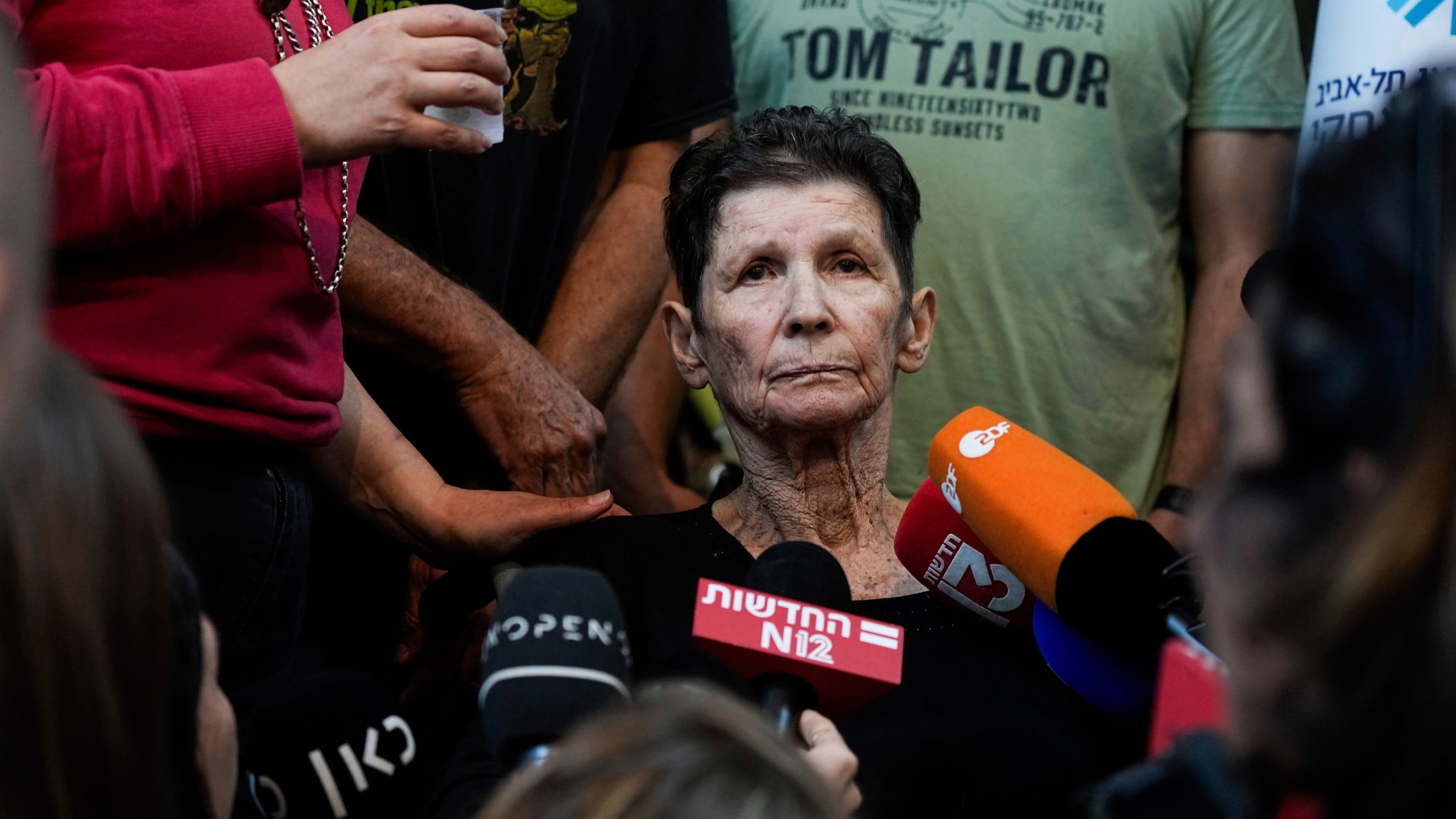By Amy Teibel
Eighty-five-year-old Yocheved Lifshitz spoke of a “hell that we never knew before and never thought we would experience” as she described the harrowing Oct. 7 assault on her kibbutz by Hamas militants and the terror of being taken hostage into the Gaza Strip.
Lifshitz was the first of the four hostages released so far to speak of their experience, from the initial attack through the more than two weeks of captivity.
“Masses swarmed our houses, beat people, and some were taken hostage," said Lifshitz, speaking softly from a wheelchair as she briefed reporters on Tuesday at Tel Aviv's Ichilov Hospital, a day after Hamas released her and 79-year-old Nurit Cooper. “They didn’t care if they were young or old.”
Her 83-year-old husband, Oded, remains a hostage in Gaza.
Lifshitz, a member of Kibbutz Nir Oz, was among the more than 200 Israelis and foreigners seized after heavily armed Hamas militants broke through Israel’s multibillion-dollar electric border fence and fanned across southern Israel, overrunning nearly two dozen communities, military bases and a desert rave. More than 1,400 people died in the daylong killing spree that followed.
Israel’s military has launched a devastating war on Gaza in an effort to crush Hamas and its airstrikes into Gaza after the attack have killed more than 5,000 people, according to the Hamas-led Gaza Health Ministry. Lifshitz’s captors hustled her onto a motorcycle, removed her watch and jewelry and beat her with sticks, bruising her ribs and making it difficult to breathe, she said.
Once in Gaza, she walked several kilometers to a network of tunnels that she described as “looking like a spider web.” She reached a large room where 25 people had been taken but was later separated into a smaller group with four others.
The people assigned to guard her “told us they are people who believe in the Quran and wouldn’t hurt us.”
Lifshitz said captives were treated well and received medical care, including medication. The guards kept conditions clean, she said. Hostages were given one meal a day of cheese, cucumber and pita, she said, adding that her captors ate the same.
Lifshitz and her husband were peace activists who regularly drove Palestinian patients from Gaza to receive medical treatment in Israeli hospitals. But in captivity, the hostages told their captors, “We don’t want to talk about politics," she said.
Lifshitz and Cooper were the second pair of hostages to be released. On Friday, Hamas freed two Israeli-American women. Israel’s government has said returning all hostages safely is a top priority.
Israel overlooked warnings that something was afoot ahead of the attack, Lifshitz said.
“We were the scapegoat of the government,” she said. “They (Hamas) warned us three weeks before they taught us a lesson. A huge crowd arrived at the road. They burned fields. They sent incendiary balloons to burn the fields, and the army didn’t take it seriously.”









